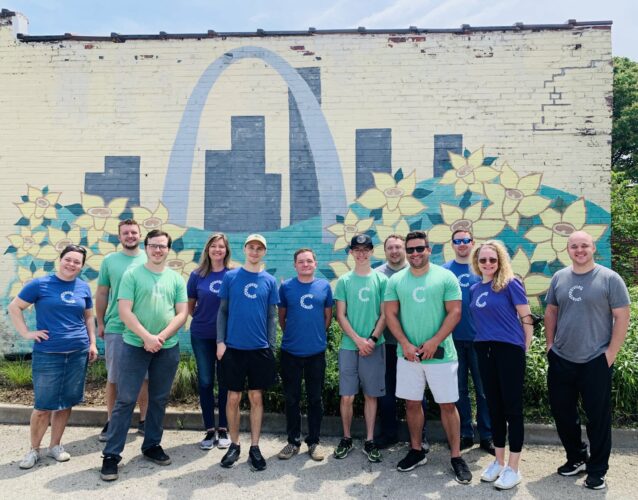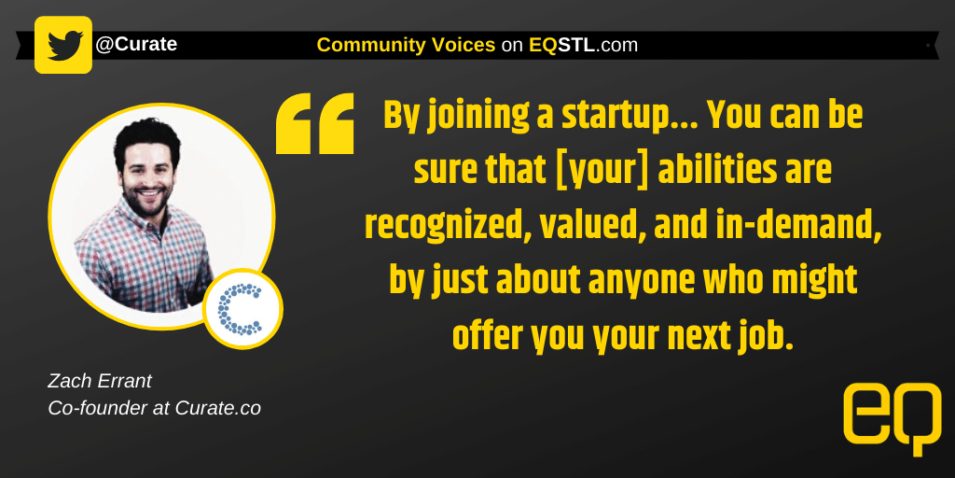
Finding Another Entrepreneur to Ask Advice
If you’ve never successfully run a startup before, you'll need feedback on how to grow. How do you know whether someone has "the chops" to be able help?

Writing by Ryan O’Neil. Ryan bootstrapped his company into a multi-million dollar startup from scratch by hacking a WordPress theme into a web-app. He saw his wife slaving away at very complex wedding bids and manually creating 17 different files for every event that her wedding floral company did. Using $600 he won from a hackathon, he built the first version of Curate, the industry-leading application for event florists and caterers. After having miserably failed at a previous startup, he learned lessons of building lean and iterating based on users feedback. He’s now focused on building the best team in St. Louis and creating a scalable organization guided by core principles.
One of the hardest parts of founding a startup is how quickly you have to learn a massive amount of information. If you’ve never successfully run a startup before (and even if you have), you’ll need feedback on how to grow.
How do you know whether someone has “the chops” to be able help? It’s very difficult but, with the right approach, it can be done efficiently.
Who Do You Choose to Ask for Advice?
Think of the top 5 people that you would love to get advice on your company. If this is your first startup, there’s a good chance all 5 are wrong. THIS is the rub.
The people you’d get most excited about, might be the least helpful. It’s ok…you’ve never done this before.
But, if you work hard, you can find a few incredible people willing to sit with you and give advice on your startup. Here are the parameters that you need to look for:
- Are they (or have they ever been) 2-3 steps ahead of you? >10x your current revenue for a software company? If they’re only a little bit bigger than you, you might eclipse them by the time you sign any paperwork.
- Have they ever been in your position? If you’re operating at 10k in MRR, it’s important that they’ve sat in that cockpit before.
- Have they ever run a company with a similar revenue funnel? SaaS, Service-based, e-comm, manufacturing, whatever
- Have they built a similar product to you? If they’ve made software and you’re making clothing, the leadership lessons might be applicable but the similarities stop there.
- Have they served a similar tier of the market? SMB, B2C, Enterprise, Mom and Pop, etc.
- Have they accomplished what your end goals are (or are they on track to do so)? If you’re trying to exit in 5 years and they’re running a lifestyle business, the advice they’ll give you is totally different that what you’re needing.
If they’re missing more than two of those, keep any conversation around general business topics. But know that the best advisors have many similarities to you and will have at least 4 of these 6 qualities.
How Do You Find Someone in the First Place?
Avoid starting off by asking for a mentor or some other kind of deep commitment.
If you find a few people that meet the qualifications listed above, just reach out to them to get advice. Offer to buy them a coffee.
There’s a good chance they’ll be too busy to help but you can try. Optimally, you can connect with people in the startup community locally.
People are truly giving – even if they’ve never heard of you. Our company came out of nowhere.
We applied for everything but we won no awards, Arch Grants, or Startup Showcases. We had received no funding or newspaper articles written about us.
We knew that we needed guidance. So, how did we get people willing to connect with us?
Just by asking. I found people on LinkedIn or asked other connections who I thought might be able to connect.
Here’s an actual LinkedIn message that worked for me a while back (with some of the details obfuscated):
Would you be open for coffee some time? I’d love to hear your philosophy on scaling SaaS companies. We’re right under (Number)k ARR right now and I know I’m moving to a new stage of business as the founder.
There’s few people in St. Louis who have been this far in SaaS, let alone $5m+, so it’s kind of hard to hear many great philosophies. 🙂 Also, I’ve been hearing great things about (company name) and we’re considering utilizing it for our team. Does it work with (other software)?
Here’s what they want to see to be willing to meet with you:
- You’re legit. You have some level of progress and no spider senses are going off because your jargon is what they’d expect.
- You’re local (or, at least, will be convenient to chat with);
- They can actually help. They’ve been where you’re at / have knowledge of the problem you’re facing.
- That you got straight to the point. Keep it short. No love letters. No WWE firework intro.
Let me reiterate the first point; If you’ve yet to sell anything, you need to spend your time reaching out to customers instead of advisors. You will be severely limited on the advice people will be able to give you if you’re unable to walk into the conversation with information that they can work off of.
If you are sending cold emails to serial entrepreneurs without ever sending cold emails to potential customers too, you’re being disrespectful to those entrepreneurs and their time.
How Do You Get the Value You Need Out of this First Connection?
You’re the one who asked them to be there. Remember that.
They’re pulling out of their busy day to help. So, treat this as a conversation with a person who is helping you solve a very specific problem.
Common mistakes during these conversations.
- Talking about how awesome your vision is. They hear stuff from “idea guys” all the time. Avoid mentioning anything about NDAs or secrecy. Use the Winklevoss rule. Your raw idea is less great than you think it is and there’s someone out there who looks exactly like you who has the same idea already.
- Mentioning *anything* about being an advisor or mentor or equity grants or anything that indicates long term relationships.
- Advising them. Does this really need to be said? Avoid trying to give feedback on any comments they make. If you really want to give kick back to something they’re saying – you’re probably wrong. However, if you must, ask it as a question (and mean it as a question). “Why would you use ARR instead of MRR? Aren’t they the same?” This is much better than: “MRR and ARR are the same so it doesn’t matter which one I use.”
Whether the conversation is a misfit, perfect fit, once-in-a-lifetime coffee, or recurring meeting, EVERY conversation needs to be treated the same way: appreciation for this person taking their time out to speak with you.




